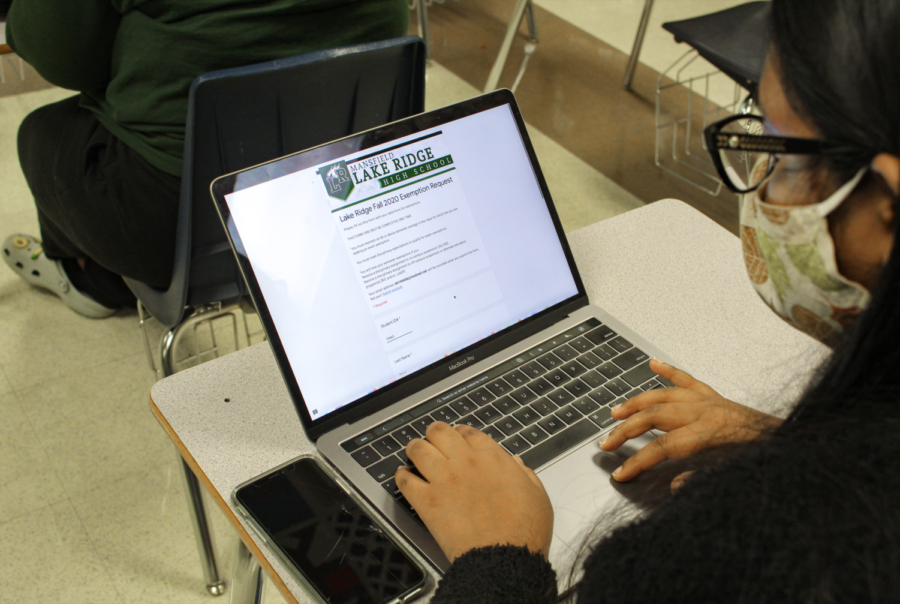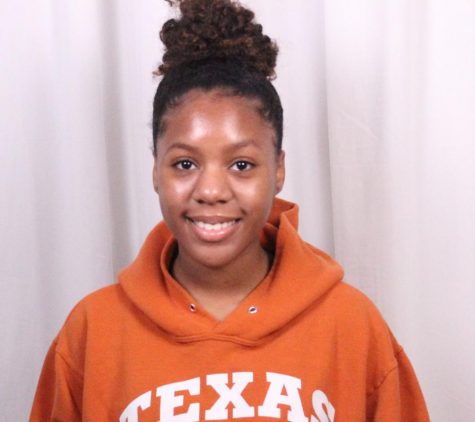Virtually Lost?
Students will soon be taking AP tests. Many wonder how learning online will affect their scores.
It is no secret that there have been several changes this school year from the addition of virtual learning to the increased safety precautions the school has had to take in order to keep everyone as safe as possible. The AP tests have not been immune to these changes. Because of this some students feel as though they are not prepared for the upcoming AP tests and have made some question the quality of their online education.
For many virtual students this year has been their first time learning from home all day every day while some were able to adapt to this new learning environment quickly and effectively others were not so successful. Due to this some virtual students are beginning to get nervous about taking the AP tests due to concepts they have not completely grasped online. Junior Madison Martinez feels as though she is at a disadvantage due to the education she received virtually.
“I would most definitely say that I am at a disadvantage when it comes to the AP tests since I am virtual, not only did I not get the intimate learning experience that in person students got but the quality of my virtual education is just lesser than. I don’t think that the AP tests are fair this year but I do feel as though College Board is doing their best to make it fair,” Martinez said.
However most teachers have been doing their best in order to even the playing fields between both virtual and in person students. However there are still factors that have a negative impact on both in person and virtual learners that are out of the teachers control. AP human geography teacher Ashley Hicks says that she tries her hardest to make the learning experience as fair as possible for both in person and virtual students.
“I do not think virtual students are at a disadvantage. For AP Human, we were able to use canvas to provide students with our recorded video lectures and the exact same activities that we used for our in person students. I think virtual learning has challenges but so does in person learning. Each setting (in-person, and virtual) will work well for some students and not for others. It has been a challenging year and I am sure there will be gaps in material for some students. Not because of virtual learning but because of the movement from in-person/virtual, quarantining students, moving classrooms, etc. I am hopeful that we will be able to close some of the gaps with our 3 week in class review,” Hicks said.
However while Hicks feels that the learning experiences have been as fair as possible this year, she doesn’t feel the same about the AP tests.
“I never feel that a single test will accurately measure all that a student has learned this year. Half of our test is three essays and those prompts can be anything from the course. Maybe a student was absent the day we covered that one topic or I was out sick for that topic, so we did not cover it as in depth as I would like to. Regardless of how testing goes this year, I am super proud of how my students have persevered this year,” Hicks said.
Collegeboard has also made changes to the way the test is taken in order to cater to both online and in person students. Some of these changes have been controversial such as not allowing students to go back to questions they have completed. According to junior Yoshwa Kyei unfair to those taking the test online.
“I do not think that AP tests are still fair. The fact that virtual test takers can not go back on test questions angers me. Good test takers know that going back to check work is a strategy used to improve test scores. I feel like preventing virtual students from checking their work is inherently unfair in the name of preventing cheating. I do not believe that the AP tests will accurately measure a student’s understanding of concepts this year. Maybe the previous years, but not this one. I think in person students will do better on the exam because they can go back and check their work. I do not think it reflects the quality of education, but rather how students have been learning all their lives. We have been in the classroom all our lives, so those in person may perform better simply because they have been in a “regular” environment while learning AP concepts,” Kyei said.
However Kyei feels as though she is not at a disadvantage when it comes to the education she has received in order to prepare her for the AP test.
“I do not necessarily feel like I am at a disadvantage. You get what you put in AP classes, so I feel like whatever classes I put effort in is what I will see good results in, despite being virtual,” Kyei said.
The quality of a student’s education typically depends on the teacher and the way they teach a certain subject. Students’ test scores will be largely connected to whether or not their teacher was able to successfully connect to them. AP physics teacher Lauren Cooper feels as though some classes have better prepared students than others.
“I think that in theory, it shouldn’t have an impact if both the virtual students and the in person students were taught the same material. Based on my experience, the virtual students may be somewhat less prepared for the AP test since for physics it is a paper/pen test and not digital like they are used to. I also think that it is important to look at how well a student does in that subject when they get to college/university as well and not rely on just one single test to measure their learning,” Cooper said.
The AP exams were not exempt to all the changes that were made this year and will still be used to see if a student receives college credit for a specific course. For many teachers and students it will be interesting to see how all the changes this year have affected students learning.


